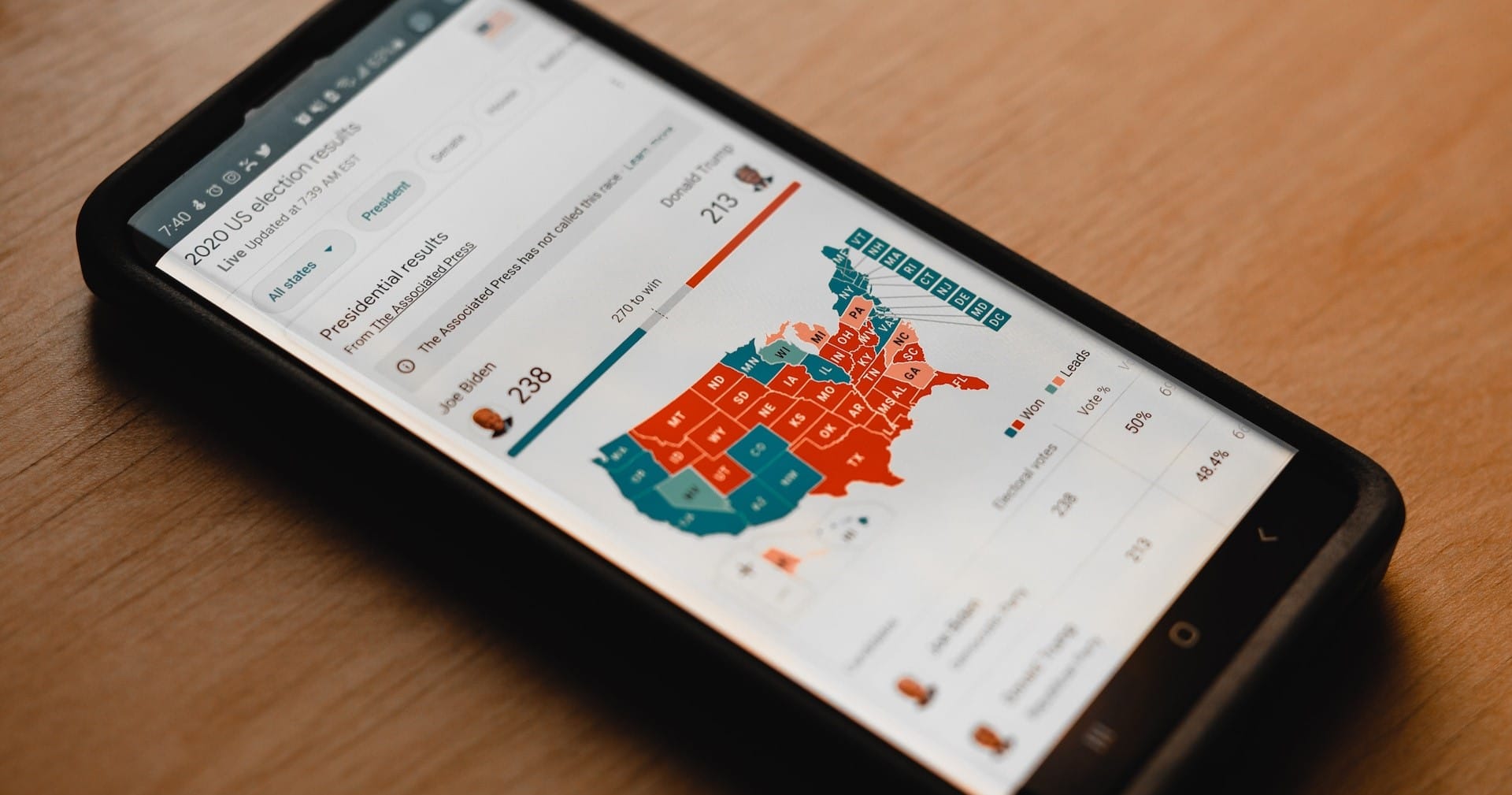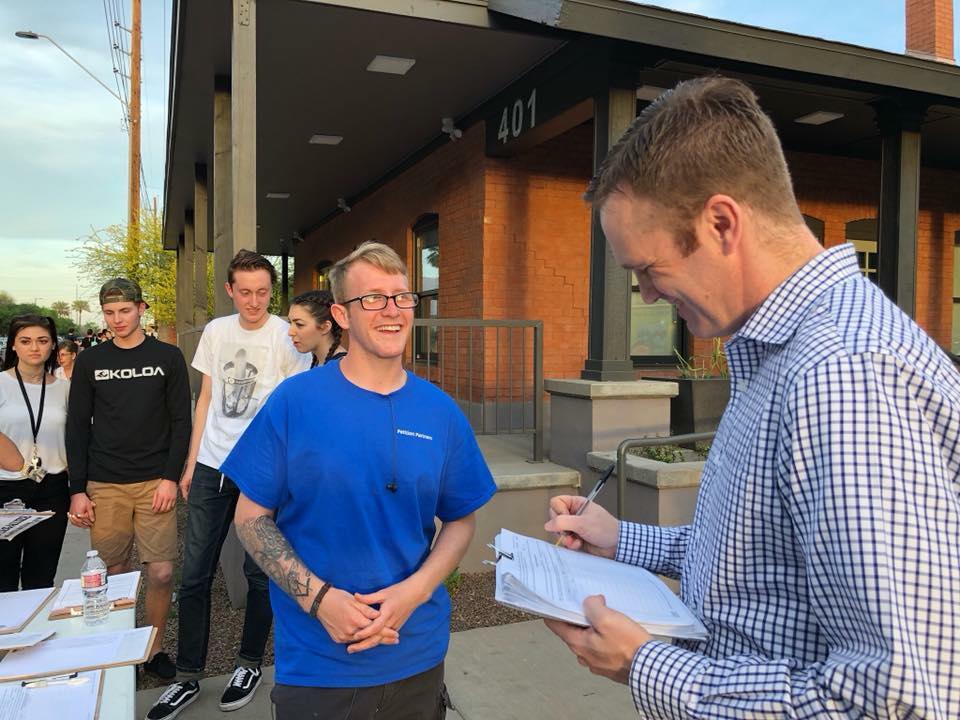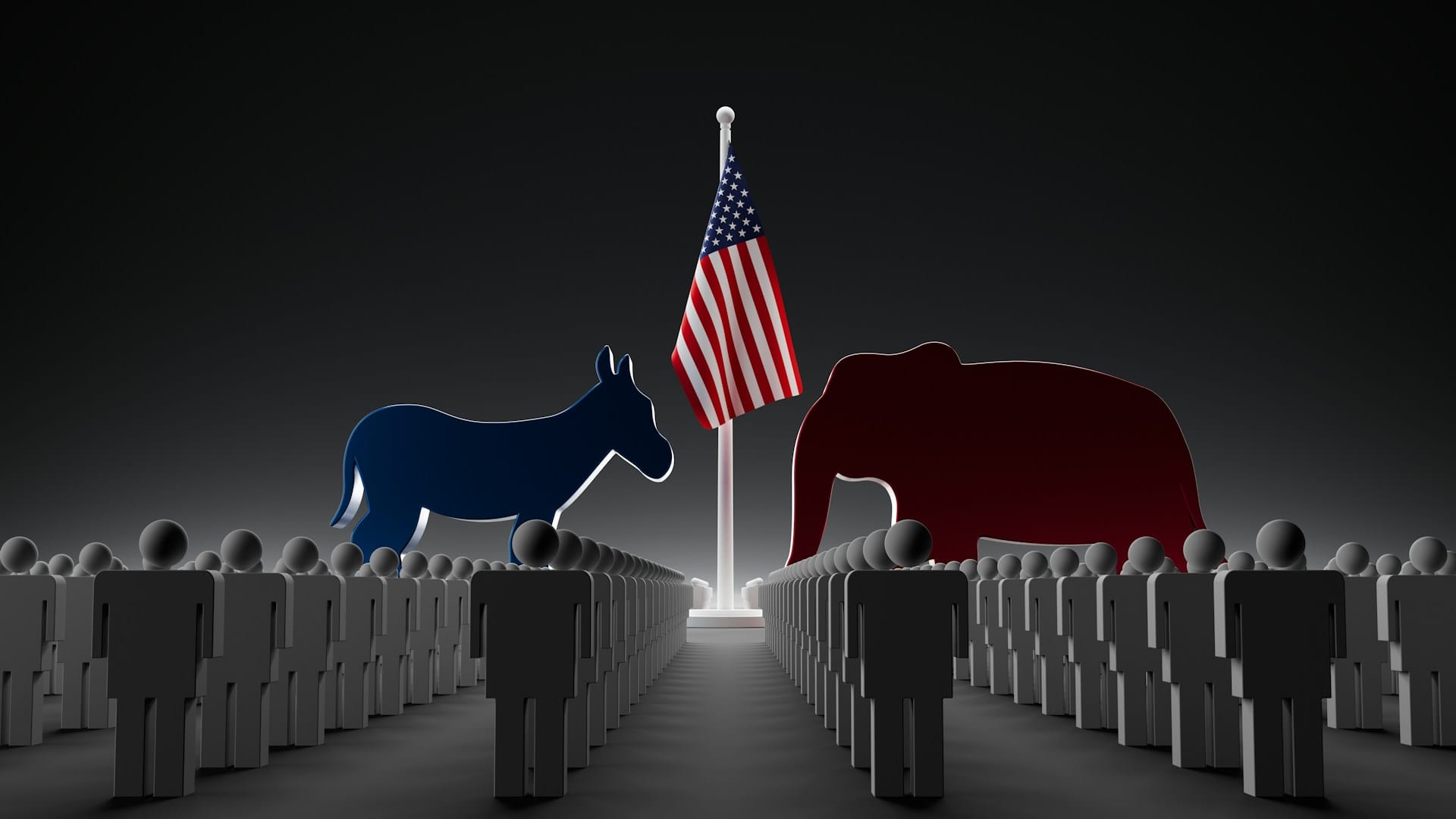10 Ways Both Parties Are Destroying Democracy

As the political landscape in the United States gears up for the 2024 presidential election, the media's focus is often on the perceived threats to democracy posed by individual candidates or movements, like the rhetoric around the MAGA crowd and former President Donald Trump, who is treated as the likely GOP nominee.
However, voters are becoming more aware of the fact that the very institutions meant to uphold democracy are already being undermined by the Republican and Democratic Parties. From primary elections to ballot access, debates, and election reforms, both parties are contributing to the erosion of the democratic process in the United States.
1. Party Primaries Disenfranchise Millions
Primary elections, which are the most critical stage of the elections process, disenfranchises tens of millions of voters each election cycle. Taxpayer-funded assets are utilized for party primaries. Yet, access to them is heavily restricted.
In states like Democratic-controlled New Jersey and Republican-controlled Oklahoma, voters are told to pick a party or don't vote. Or, the rules are so unnecessarily complex on what primaries voters can and cannot participate in -- like in California's presidential primary system -- that it leaves voters confused and unable to meaningfully participate.
And thus, a system that conditions the right to an equal vote on affiliation with a private political corporation persists.
INTERACTIVE MAP: FIND OUT MORE ABOUT YOUR STATE'S PRIMARY RULES
2. RNC and DNC Rules Can Override Primary Results -- Or Outright Cancel Primaries
The major parties have adopted rules that supersede the election codes in their respective states. The 2011 California Republican Party rules, for instance, said the party "retains the right and prerogative of association to recognize and determine for itself the ways and means of nominating persons as nominees for partisan elective offices."
The California Democratic Party's bylaws similarly have stated that "members of the California Delegation to the Democratic National Committee shall be elected by the Executive Board of This Committee.”
The RNC and DNC have asserted their right to govern the nomination process regardless of voter preference in public and in court. The recent refusal by the DNC to offer more options on the presidential primary ballot in several states and the cancellation of primaries in states like Florida exemplify the reality present in presidential primary elections.
The DNC informed New Hampshire voters that their primary in 2024 will be "meaningless" because the state refused to hold its primary election after South Carolina. Because the state didn't do what the party wanted, the primary results will not determine delegate selection.
And the parties can get away with this under the current system manufactured by their own members.

3. Separate Rules for Independent and Third-Party Candidates
In most cases, independent and third-party candidates do not participate in the primary stage of elections, an electoral barrier compounded by rules designed by the major parties to impede ballot access and make it harder to raise money and access the debate stage.
Georgia, for example, has such burdensome ballot access requirements that no independent candidate has qualified for a congressional election since 1964.
Arizona Republicans are so adamant about keeping Libertarians off the ballot that in 2015 they changed the signature requirement for statewide office from around 130 signatures to over 3,100 signatures -- but only for Libertarian candidates.

4. Parties Make it Hard for Competition to Stay on the Ballot
Legal challenges to independent or third-party candidates' ballot placement are commonplace across the country. Often times the legal challenge is not based off a genuine grievance but is meant to bury the candidate in legal fees until they are forced out of the election.
Arizona Libertarian candidate Kevin McCormick, for example, ran for governor in 2018 and submitted the second-most online signatures of any candidate running, However, a lawsuit was filed by the state Republican chair to keep him off the ballot.
In March 2023, the Arizona Democratic Party sued to keep No Labels from putting a presidential candidate on the state's ballot. The lawsuit failed but many candidates outside the major parties have not been so lucky to survive legal action against their campaigns.
This practice further limits voters' choices and undermines the principle of fair competition.
5. Attack on Citizen Ballot Initiatives
Efforts to curtail citizen ballot initiatives, a crucial avenue for electoral reform, are underway in several states. These initiatives have historically been effective in improving representation and accountability in a state's electoral and political processes, but legislative moves to impede them are threatening to stifle citizens' voices.
According to research from the nonpartisan anti-corruption group RepresentUs, 64 bills were proposed in 11 states from 2017 to 2022 that were designed to make it harder for citizens to shape policy and the future of elections.
6. Exclusionary, Uninformative, or Non-Existent Debates
Debates, a cornerstone of political discourse, have become more of a spectacle than an informative platform. The refusal by the DNC to host debates with eligible challengers to President Biden and the exclusion of independent and third-party candidates at all levels, including by the bipartisan Commission on Presidential Debates, contribute to a lack of diverse perspectives.

7. Public Opinion Has No Say on Policy
Republicans and Democrats have shaped election laws so that policy will benefit the parties and affiliated special interests. This isn't an opinion. It is a fact supported by research from prestigious institutions like Princeton and Northwestern University.
In 2014, researchers from these universities stated, “When the preferences of economic elites and the stands of organized interest groups are controlled for, the preferences of the average American appear to have only a minuscule, near-zero, statistically non-significant impact upon public policy.”
An election system controlled at every level by the parties offers zero incentive to put the public interest first, inhibiting bipartisan cooperation and the pursuit of lasting solutions. The further the parties drift apart the less influence voters have on the actions of the people elected to represent them.
8. Partisan Gerrymandering
Partisan gerrymandering, practiced by both parties in states across the country, distorts electoral districts to preserve and expand the political power of the party that controls a majority in the state legislature. The end result is a lack of meaningful and accurate representation in the US.
While lower courts in places like Republican-controlled Texas and Democratic controlled Maryland have tried to intervene, the Supreme Court of the United States has repeatedly refused to weigh in on the partisan motivations of redistricting.
9. Partisan Control of Election Administration
Recent election cycles have turned people's attention to partisan control over election administration, which is exemplified by Democratic and Republican secretaries of state as well as party-loyal members of election boards.
Voters have watched these elected officials run on party platforms, campaign for candidates running in elections they oversee, make decisions in their own elections, and push partisan agendas through official channels as their state's chief elections official.
Partisan control of election administration raises concerns about the impartiality of the election process -- concerns that have invited skepticism and mistrust among many voters.
It is like the teams in a baseball game being allowed to call their own balls and strikes.

10. The Parties' Selective Support for Election Reform
Both major parties advocate for election reforms that align with their interests rather than objectively evaluating the impact on democracy. Voter ID and automatic voter registration, for example, are low hanging fruit that both parties can use for campaign messaging but neither do anything substantial to improve elections.
Meanwhile, the parties' opposition to systemic reforms like nonpartisan primaries and ranked choice voting (RCV) demonstrates a reluctance to relinquish control over the electoral process, regardless of the impact these reforms have on voter inclusion, competition, and accountability.
Preserving the status quo is a goal the Republican and Democratic Parties share. Anything that threatens their hold on elections should be squashed, which is why the talking points Republicans in Maine use against new voting methods like RCV are the same talking points used by Democrats in Virginia.
The 2024 presidential election may revolve around familiar faces, but the real threat to democracy lies within the structures upheld by the Republican and Democratic Parties. From flawed primary systems to gerrymandering and selective support for reforms, both parties contribute to the erosion of democratic ideals.
As voters become increasingly aware of these issues, the call for meaningful electoral reforms that prioritize fairness, representation, and accountability is gaining momentum.
 Shawn Griffiths
Shawn Griffiths







